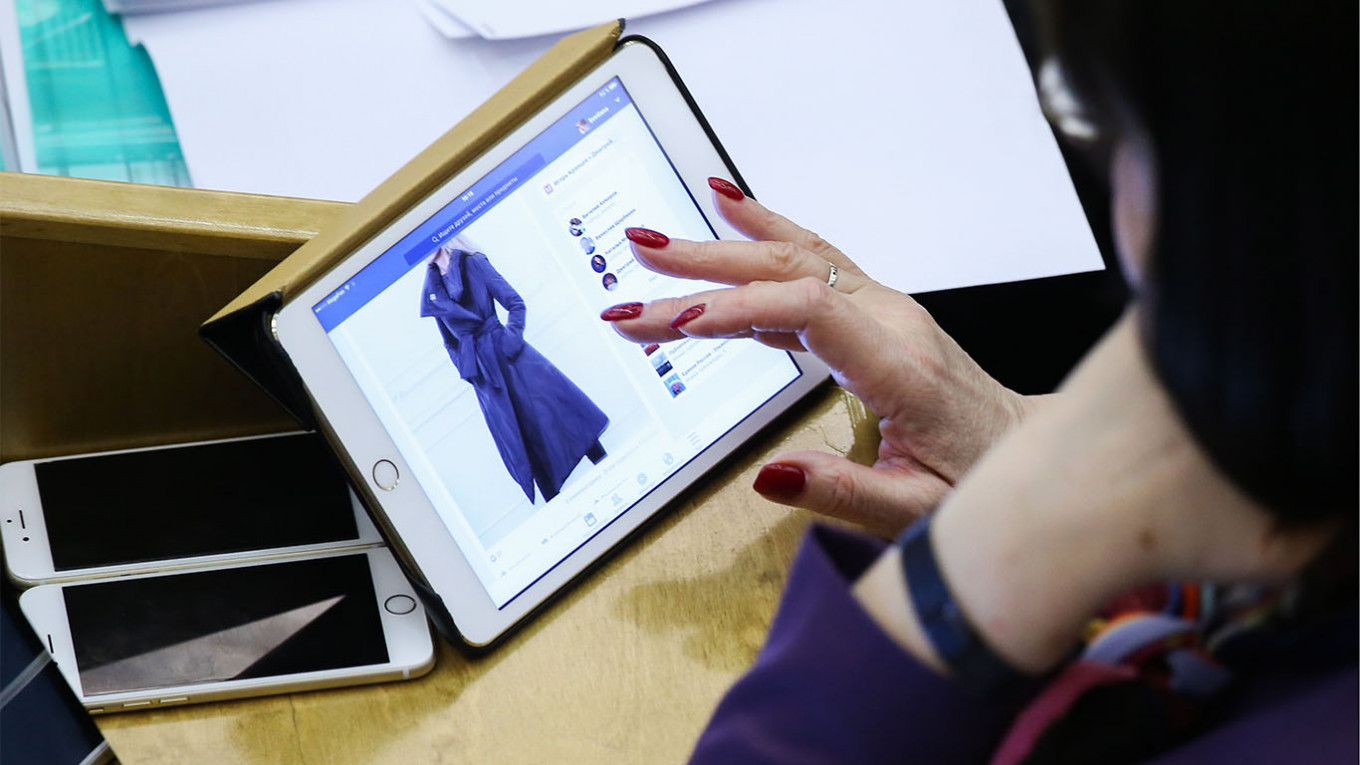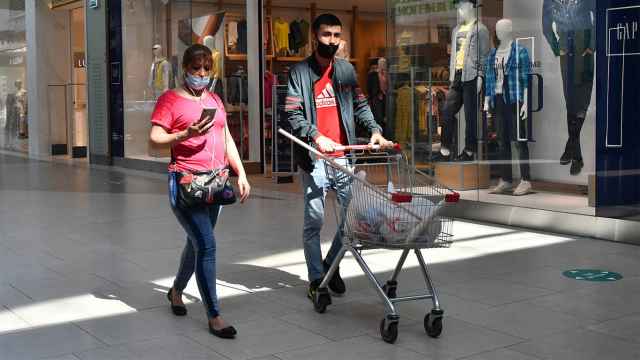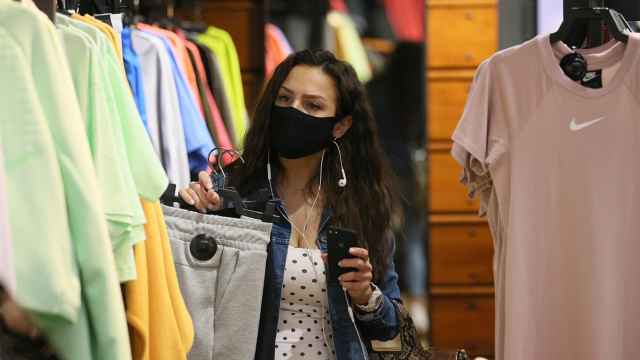Russian retail players have been rocked by the coronavirus pandemic, with the country on a month-long partial shutdown and major cities under strict quarantine, shopping habits have been transformed in a matter of days, forcing both online and offline sellers to react quickly.
Even before the shutdown of many offline outlets — which Moscow ordered on March 31 — online demand surged across a host of products. Conservation-type food products were in high demand as early as late February, with market leader Utkonos reporting a 60% sales spike in comparison with the same period of last year.
Sales boost
E-commerce companies have also reported a huge jump in interest — sometimes fleeting — for many other food items, as well as refrigerators and other home essentials. Demand for board games, crafts and hobbies, paracetamol and even sex toys peaked as Russians switched to remote work and prepared for the lockdown.
To prevent price gouging, e-commerce major Ozon even had to cap prices for the most sought-after goods. Amid the market turmoil, the company received $150 million in fresh investment from Russian and U.S. investors in a long-awaited round of financing.
In the first “non-working week,” Russians’ consumption habits changed drastically. From March 30 to April 5, the number of online orders at cafes and restaurants increased by 78% compared to a month earlier, data from payment services provider Yandex Kassa showed. Paid TV providers generated almost twice as much revenue, gaming services saw transactions increase by 29%, while educational platforms saw a 64% bump, though this translated into revenue gains of only 19% and 5% respectively. Yandex Kassa says this is because “customers chose either low-cost options or free trial periods.”
Unsurprisingly, sales of travel packages, entertainment tickets and personal services crashed. Concert, cinema and theatre tickets dropped 65% in the first week of lockdown, while turnover at websites offering repairs, cleaning, hairdressing and beauty services plunged by more than half. Yandex Kassa data showed an increase in payments to charities by ordinary Russians, although the sector itself has seen a sharp drop in support from mid-sized corporate donors.
Operational transformation
Company procedures, as well as sales, have also been rocked by the coronavirus pandemic. From Wildberries, to Lamoda, to Kupi Vip, as well as food delivery services, online retailers are now promoting contactless delivery — where the courier and the receiver do not come into close contact at the point of delivery. This follows the example of Ozon which successfully experimented with contactless delivery last year. In the first two weeks of March, the average number of contactless door deliveries was up 60%, Ozon reported.
Meanwhile, Mail.Ru’s pharmacy and food delivery services, Vse Apteki and Delivery Club, started teaming up to offer deliveries for non-prescription drugs, with rival Yandex also launching a similar service.
The boom in online deliveries has also prompted a huge hiring drive by major online retailers — a rare bright spot of employment prospects as one in six firms report they have already started laying off workers. Wildberries plans to offer 3,500 new jobs, and is actively highlighting the social impact of the initiative on a new dedicated hiring website. Grocery delivery service iGooods intends to hire up to 3,200 new couriers and buyers, nearly doubling its headcount from before the pandemic.
While online retailers are reporting a huge surge in interest, offline retailers have faced a more existential challenge as the pandemic has forced Russia to shutter most non-essential physical stores.
Many have accelerated their transition to online sales, installed new technology at stores which remain open to reduce potential contamination points, or converted shops into so-called dark stores, closed to the public and used to fulfil online orders.
For instance, X5 Retail, which owns the Pyaterochka and Perekrestok supermarket chains has accelerated the installation of self-checkouts to more than 360 stores. “Through mass implementation of self-service technologies, [we] seek to minimize contact between customers and store personnel,” the company stated.
Consumer safety watchdog Rospotrebnadzor has urged Russians to move to cashless payments, citing World Health Organization guidelines highlighting that a virus can linger on a banknote for three to four days.
Online majors have also started marketing their own support packages to smaller companies which have been shut as a result of the quarantine. Yandex is offering micro businesses up to 15,000 rubles ($200) of free advertising, while Wildberries has launched online sales training sessions for entrepreneurs, focusing on sectors hit hardest by the coronavirus pandemic — entertainment, fitness, culture, education and restaurants.
Online marketplaces have also reported a surge in small businesses being linked up to their platforms, and have rolled out free consultations with the Trade Ministry to help smaller firms tailor their online sales strategies.
Russian e-commerce was growing fast even before the latest events, by more than 80% annually for some of the most successful market players. The next few months will show if the recent surge in demand will accelerate the industry's growth, in spite of Russians' limited purchasing power, as Russia's e-commerce scene still lages behind major Western and Asian economies.
This article first appeared on East-West Digital News as part of a series on the coronavirus impact.
A Message from The Moscow Times:
Dear readers,
We are facing unprecedented challenges. Russia's Prosecutor General's Office has designated The Moscow Times as an "undesirable" organization, criminalizing our work and putting our staff at risk of prosecution. This follows our earlier unjust labeling as a "foreign agent."
These actions are direct attempts to silence independent journalism in Russia. The authorities claim our work "discredits the decisions of the Russian leadership." We see things differently: we strive to provide accurate, unbiased reporting on Russia.
We, the journalists of The Moscow Times, refuse to be silenced. But to continue our work, we need your help.
Your support, no matter how small, makes a world of difference. If you can, please support us monthly starting from just $2. It's quick to set up, and every contribution makes a significant impact.
By supporting The Moscow Times, you're defending open, independent journalism in the face of repression. Thank you for standing with us.
Remind me later.







